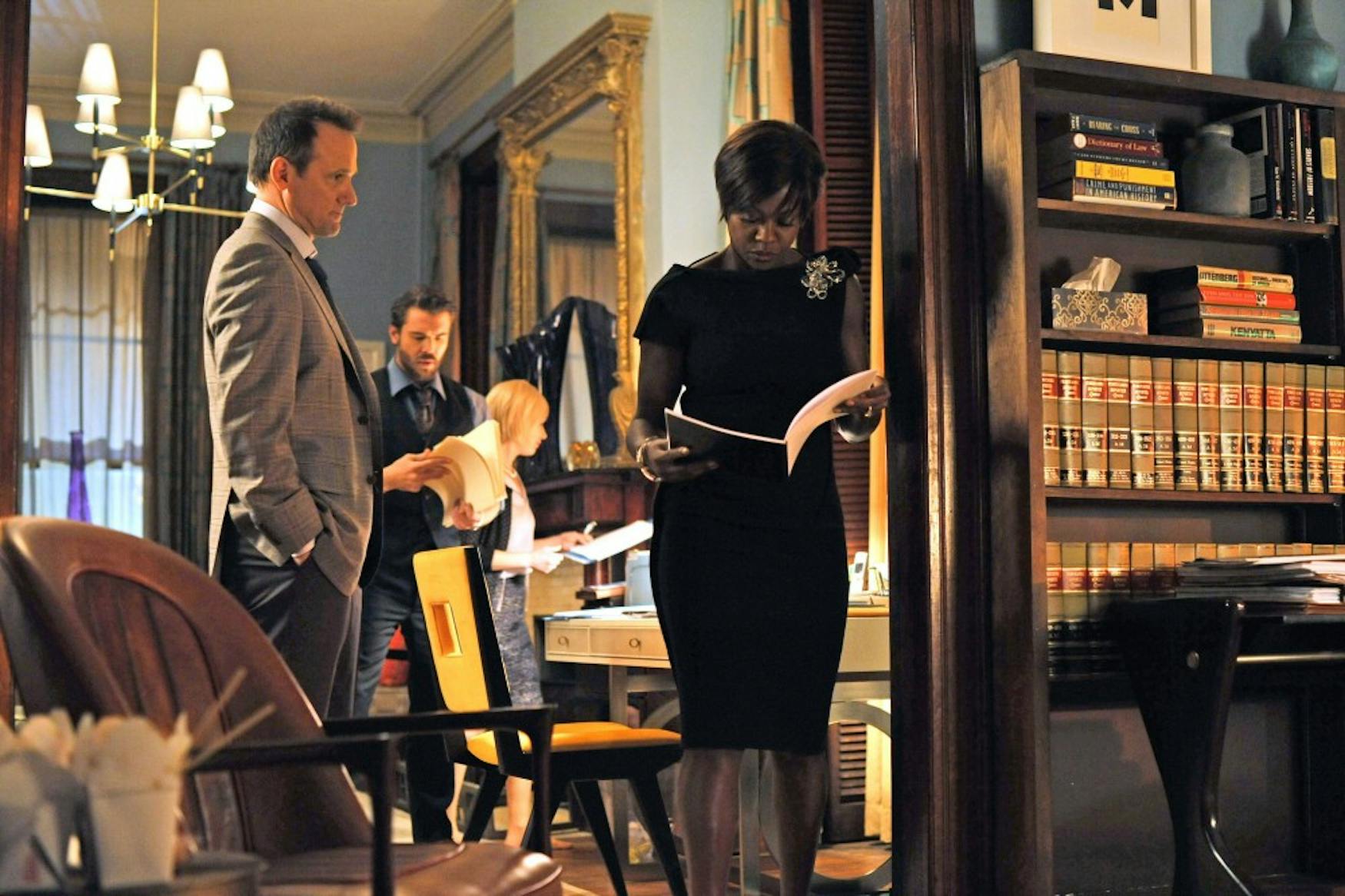New ABC show breaks barriers in television
How To Get Away With Murder, which premiered on Sept. 25 and is coming up on its fourth episode this week, has already been proven guilty—of being one of the most popular shows on television, of course.
With foreseeable end of Grey’s Anatomy, How To Get Away With Murder is a necessary addition to ABC’s programming so that I can continue to get my weekly fix of ShondaLand.
The show follows criminal defense lawyer Professor Annalise Keating (Viola Davis, who teaches a criminal law course—nicknamed “How To Get Away With Murder”—at a fictional elite university. In the show, Keating selects several students to assist her in taking on cases at her firm. From what viewers can tell thus far, the students become a little too personally involved in a case; understanding how to get away with murder becomes a necessary skill for them. The show continuously flashes forward to show the future, where the students are deciding how to hide a body. As the season progresses, it is presumed that viewers will be given some answers.
Davis portrays Keating as a strong and determined woman who does not lose in court—or in general. Davis’ performance and ability to give viewers an inside look at the emotions of such a strong female character is superb. Davis also often subtly hints at a moral conflict, proven by her decision to take on one particular case over another. She always seems to have a way to get around any wrenches thrown at her during a trial—similar to Shonda Rhimes’ character Olivia Pope (Kerry Washingon) in Scandal. Not only are these successful black women at the top of their fields, but they are also among the strongest female personalities in television currently. These shows break through stereotypes about black people, black women and all women in general to provide inspiration.
Wes Gibbons, played by Alfred Enoch, is an idealistic and driven student in Keating’s class. Although it is unclear why he is selected to assist Keating in her firm because he seems initially unprepared, it becomes clear that he complements Keating’s character. He seems to remind her of the moral conflict that she has seemingly forgotten in all of her years as a defense attorney. Keating and Enoch will certainly continue developing as characters and become more complex as the series proceeds.
Sexuality and the role it plays in the show is also quite impressive, and at a point at which all shows should be currently. Connor Walsh (Jack Falahee), one of the students working for Keating, has been shown openly having intimate relationships with other men—although it is questionable if he is only using some of these individuals to get information for his cases. Other shows currently continue to show a disparity, while Walsh’s sexuality is not treated any differently from Keating’s.
In ShondaLand shows, female sexuality is portrayed just as predominately as male sexuality. This show continues trend of shows portraying women as dominant and in control, as Keating is portrayed.
One predominant lesson in the show is that nobody can be trusted. “Do you know who anyone really is?” Keating asks her class. She even suggests that students be careful of whom they marry. From what we know, this might be an example of foreshadowing a predicament in her own relationship, or perhaps this statement reflects her cynicism after defending clients who so often lie to her for so many years. At this point, we can only tune in to find out.



Please note All comments are eligible for publication in The Justice.